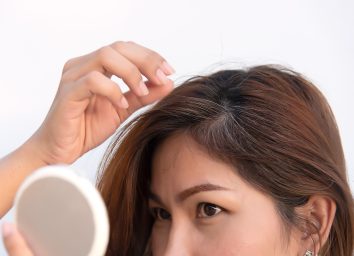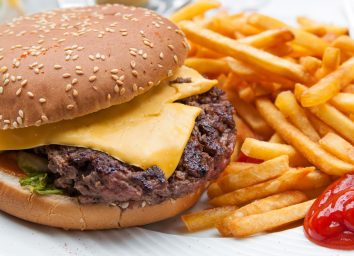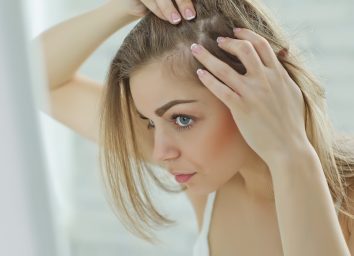21 Foods For Stronger Hair and Nails
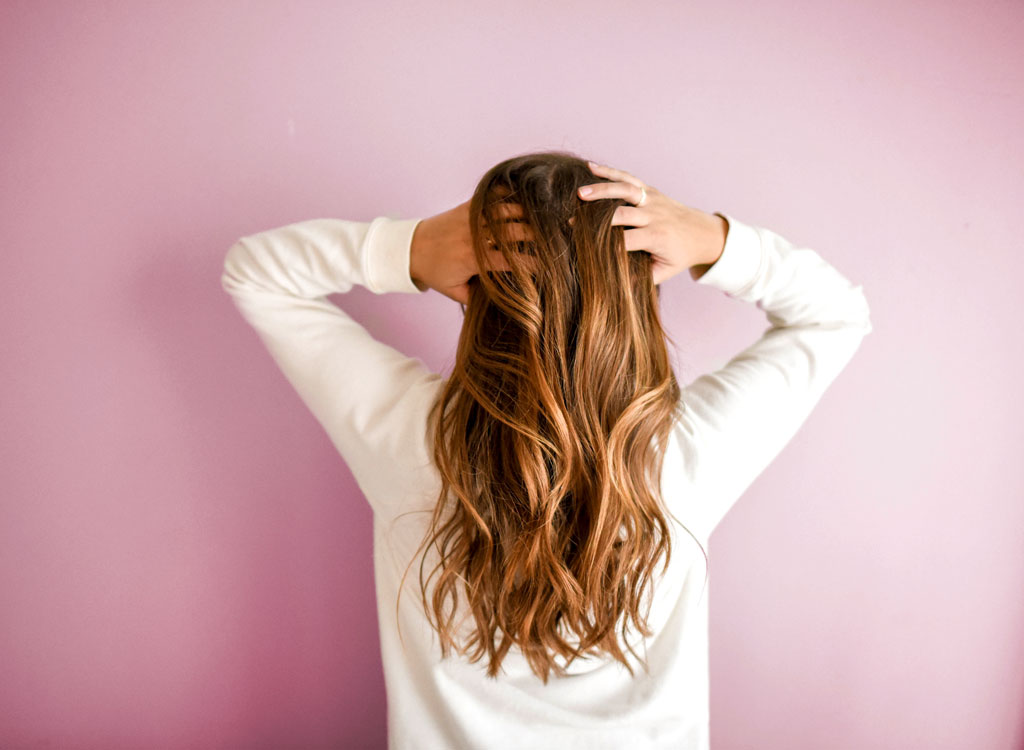
You don’t need a professional to get the glossy locks and glamorous nails you want. (Plus, why spend the money when you can acquire them without shelling out tons of dough?) Although thickness and strength of both hair and nails are largely hereditary, the food you eat (or don’t get enough of) can affect the status of your fingers and hair just as much as a fancy spa treatment can.
These well-groomed body parts are made of a fibrous protein called keratin that—when fed the right ingredients—will naturally grow stronger and healthier over time. Essentially, if tough hair and nails is your goal, what you put in your grocery cart is the first step toward maintaining them.
As you will see, numerous studies have shown that nutrients in certain foods straight up give you shiny hair and tough nails, while other research has shown a lack of some vitamins and nutrients is bad news for your appearance. Check out the list below for foods that will give you a healthy makeover without the hefty price tag, and when you’re done here start prepping with the 21 Best Healthy Cooking Hacks of All Time.
For Strong Hair
Tangerines
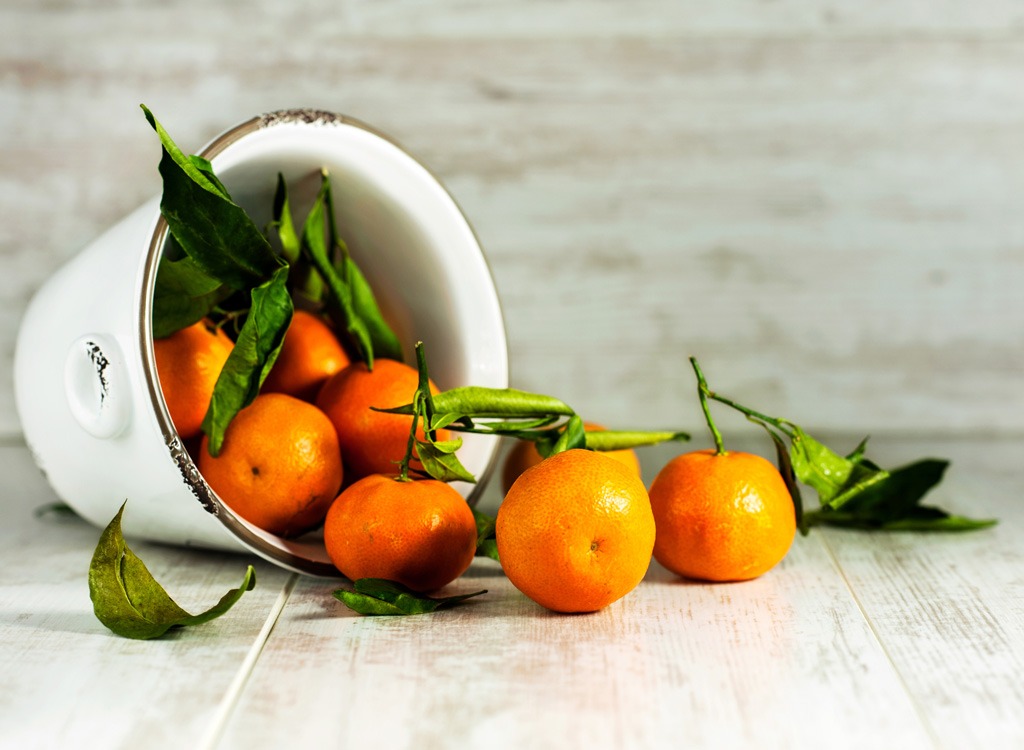
These tiny fruits pack a punch in the vitamin C department, which means they’ll help your mane stay long and strong. Vitamin C is necessary for the growth and development of hair and beyond, and since the body can’t produce it organically, eating foods packed full of the nutrient, like tangerines, is the number one way to get your fix and strengthen your hair. What’s more? When a tangerine’s vitamin C syncs up with the dietary iron from something like spinach, the result is that your body can absorb the iron much more easily, which will make your mane even tougher. Furthermore, the vitamin B12 in tangerines has been shown to promote hair growth, reduce hair loss, and slow down the graying process.
Mushrooms
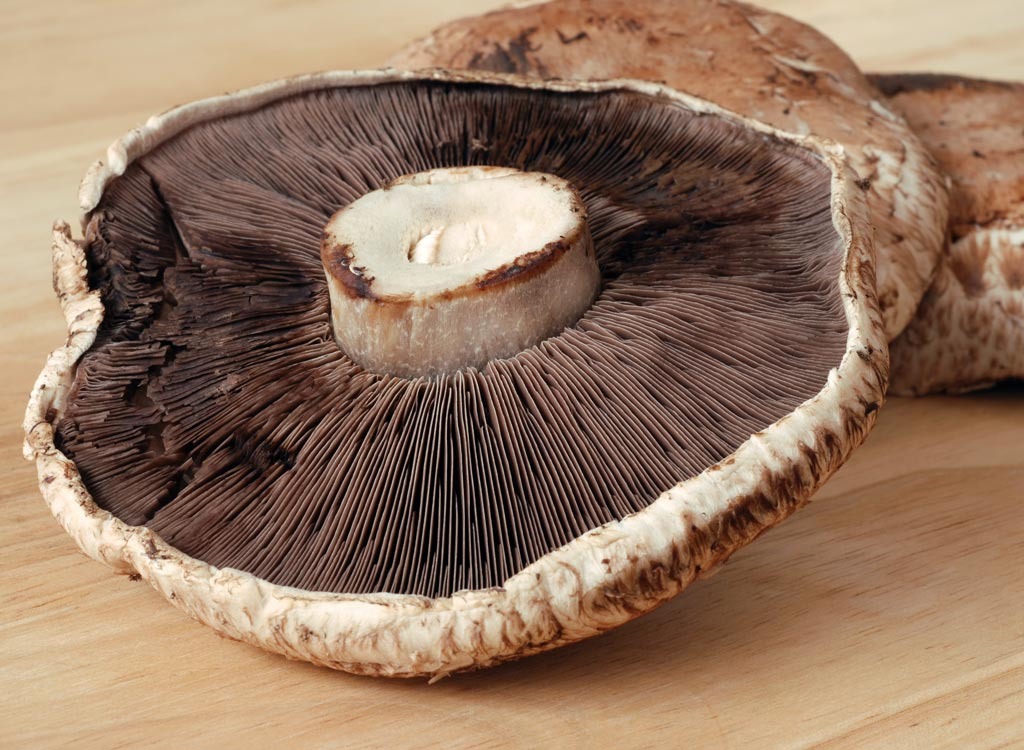
Munch on some mushrooms on your next night out! Fungi are a solid source of vitamin D they will make your hair strong and shiny. According to a study that was published in the journal Stem Cells Translational Medicine, the vitamin can help create new hair follicles: little pores where new hair can grow. This, in turn, may improve the thickness of your hair or reduce the amount of hair you lose as you age.
Fatty Fish
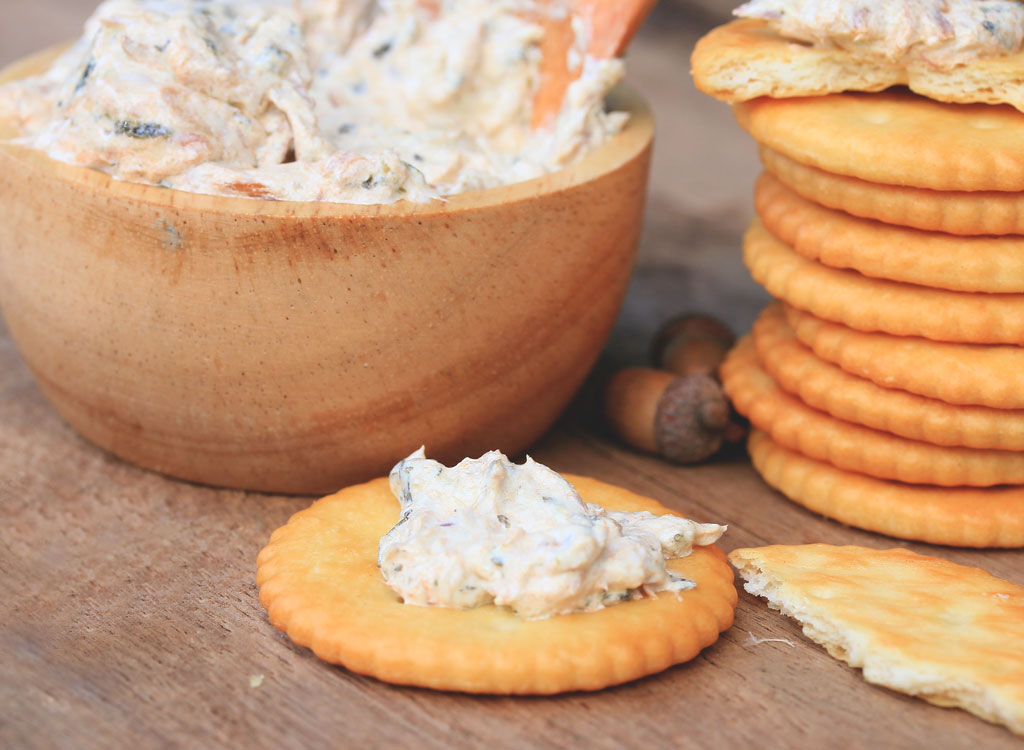
Another way to boost your intake of follicle-stimulating vitamin D is to eat fatty fish, such as salmon, mackerel, and tuna, which also happen to be loaded with superstar omega-3 fatty acids. Per a study printed in The Journal of Steroid Biochemistry and Molecular Biology, vitamin D may also help stimulate hair follicles that have become dormant. In other words, there’s evidence to suggest the nutrient may help prevent thinning hair and even bald spots. Still not convinced fish is worth your while? Take a gander at this list of 20 Reasons You Should Be Eating More Fish!
Wheat Germ Oil
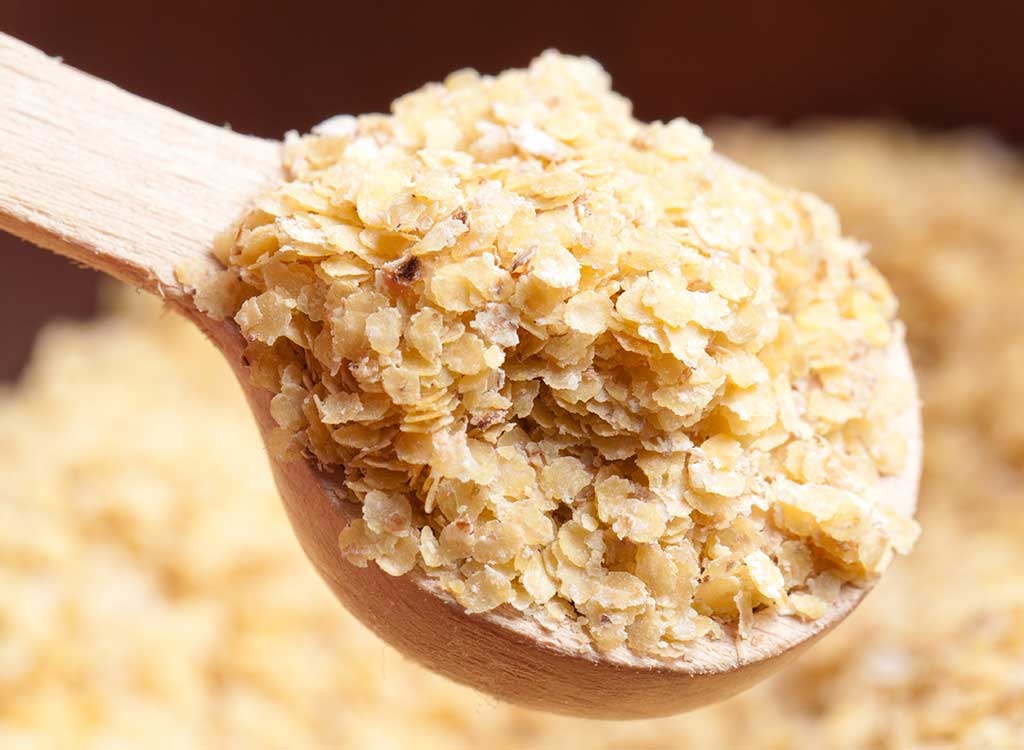
One tablespoon of wheat germ oil contains a whopping 20.2 milligrams—101% of your daily recommended value—of vitamin E, which has long been lauded for its ability to improve both your hair and skin health. According to scientists, vitamin E is able to work its magic on your mane because it contains potent antioxidants called tocotrienols, which contribute to a healthier scalp. Need proof? Researchers found that using tocotrienol supplements improved the hair health of people with alopecia and also helped prevent hair loss in a 2010 study printed in the journal Tropical Life Sciences Research.
Spinach

Spinach is packed with hair-healthy nutrients such as iron and vitamin E, so it should come as no surprise that chowing down on the rich green veggie is a great way to strengthen your locks. Doctors at the Cleveland Clinic explain that low iron stores contribute to hair loss, so if you’re looking to keep your hair strong and luscious, especially as you age, incorporating more spinach into your diet is a great way to go.
Looking for more helpful tips? Sign up for our newsletter to get daily recipes and food news in your inbox!
Oysters
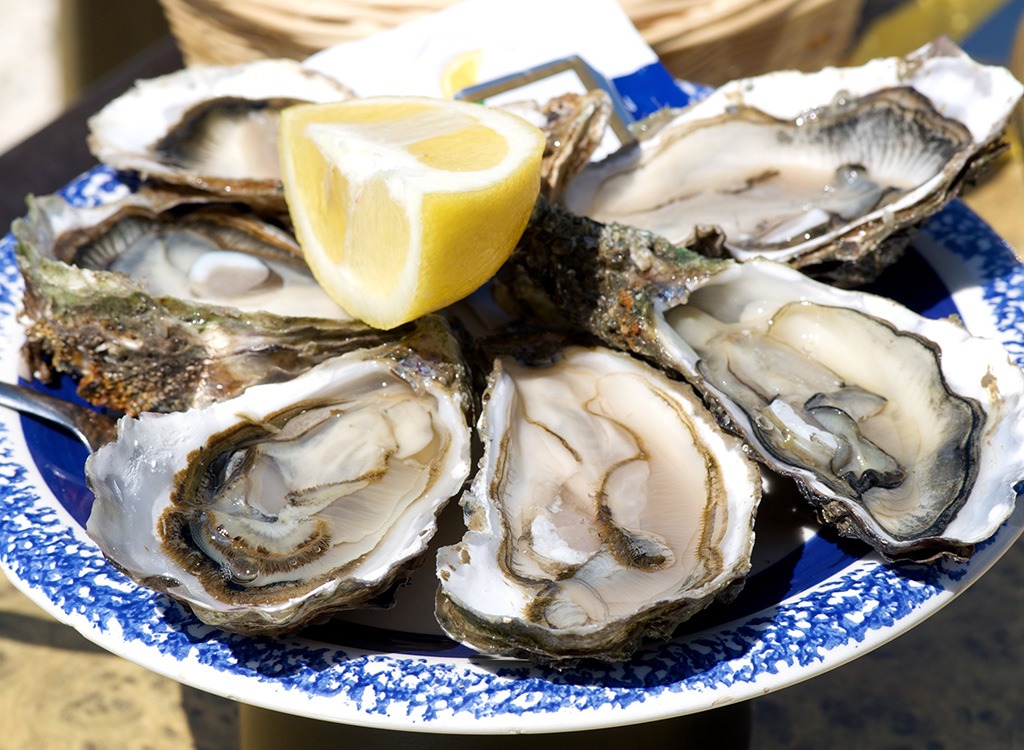
If you find your hair thinning or falling out completely, it could be because you’re not getting enough zinc in your diet. Thankfully, research has shown that hair loss related to zinc deficiency can be reversed simply by eating more of the all-important nutrient. In a study printed in the journal Dermatologic Therapy, researchers gave zinc supplements to five patients with zinc deficiency-related alopecia and discovered that hair loss was cured or improved in all of the patients after a short time. One way to boost your zinc intake is to load up on oysters. Just six of the shelled seafood will give you 30 milligrams of zinc, which is double the daily value (DV) of the nutrient!
Walnuts
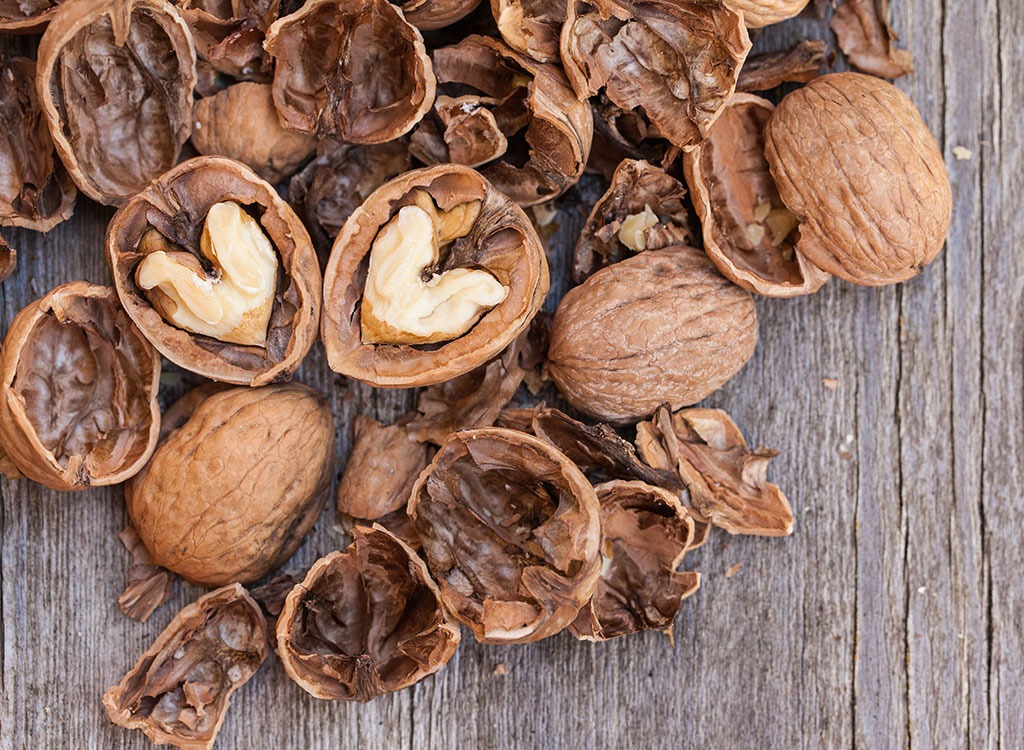
According to a review published in a journal called Dermatology Practical & Conceptual, deficiency of the polyunsaturated essential fatty acids linoleic acid (an omega-6 fatty acid) and alpha-linolenic acid (an omega-3 fatty acid) can cause hair changes including loss of scalp hair and eyebrows, as well as lightening of hair. To prevent any of that from happening to you or your hair, eat foods packed with linolenic and alpha-linolenic acids, such as walnuts.
Brazil Nuts
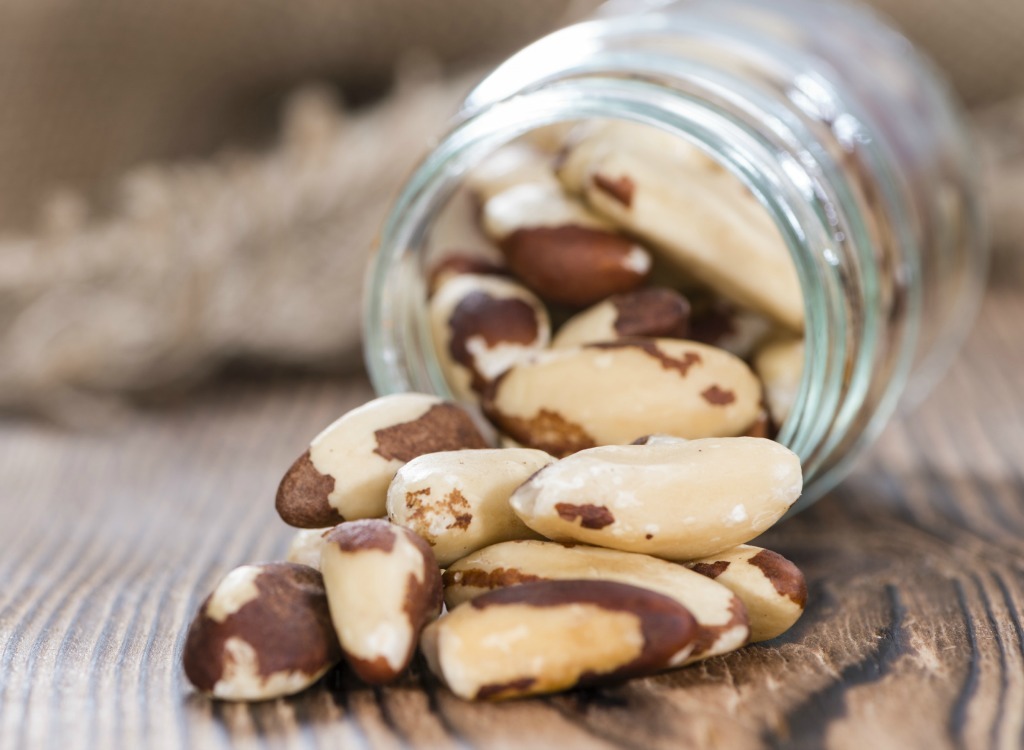
Another nutrient needed for strong, healthy strands is selenium: an essential trace element that plays a role in protection from oxidative damage and the creation of hair follicles. A study printed in the journal Endocrinology found that rats deficient in selenium displayed sparse hair growth. Similarly, another study that appeared in the journal PLoS One found that mice lacking specific selenoproteins exhibited progressive hair loss after birth. To ensure your own hair stays strong and plentiful, eat foods rich in selenium, such as Brazil nuts. Believe it or not, just seven nuts will give you over 100% DV of selenium.
Sweet Potatoes
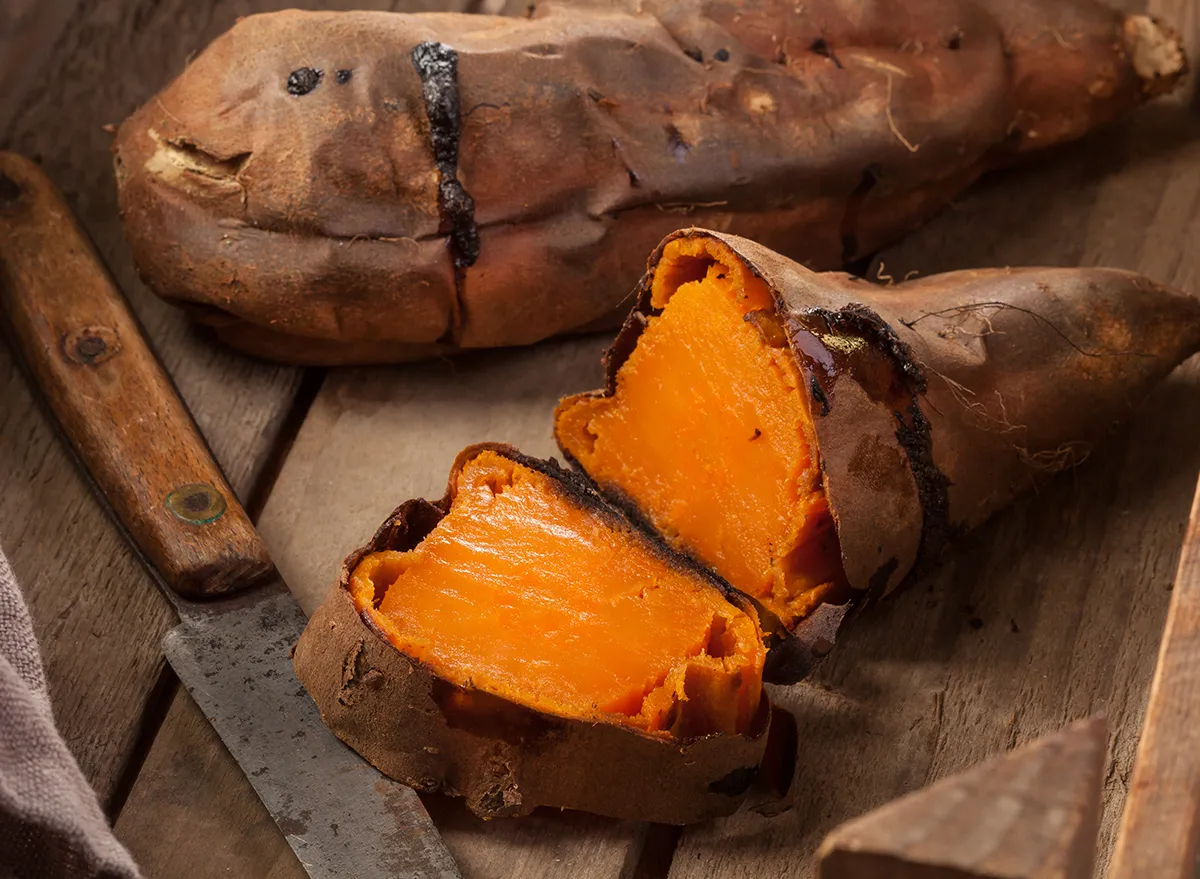
Vitamin A has been shown to activate hair follicle stem cells, according to a 2015 animal study published in the journal Experimental Biology and Medicine. In fact, if you want your hair follicles to function at their optimal level, scientists have discovered that retinoic acid—a component of vitamin A—is necessary. To load up on the hair-helping nutrient, snack on a baked sweet potato (with the skin) which, per the National Institutes of Health contains a whopping amount of vitamin A (561% DV, to be exact). Just don’t overdo it, because too much vitamin A has actually been linked to hair loss.
Black Beans
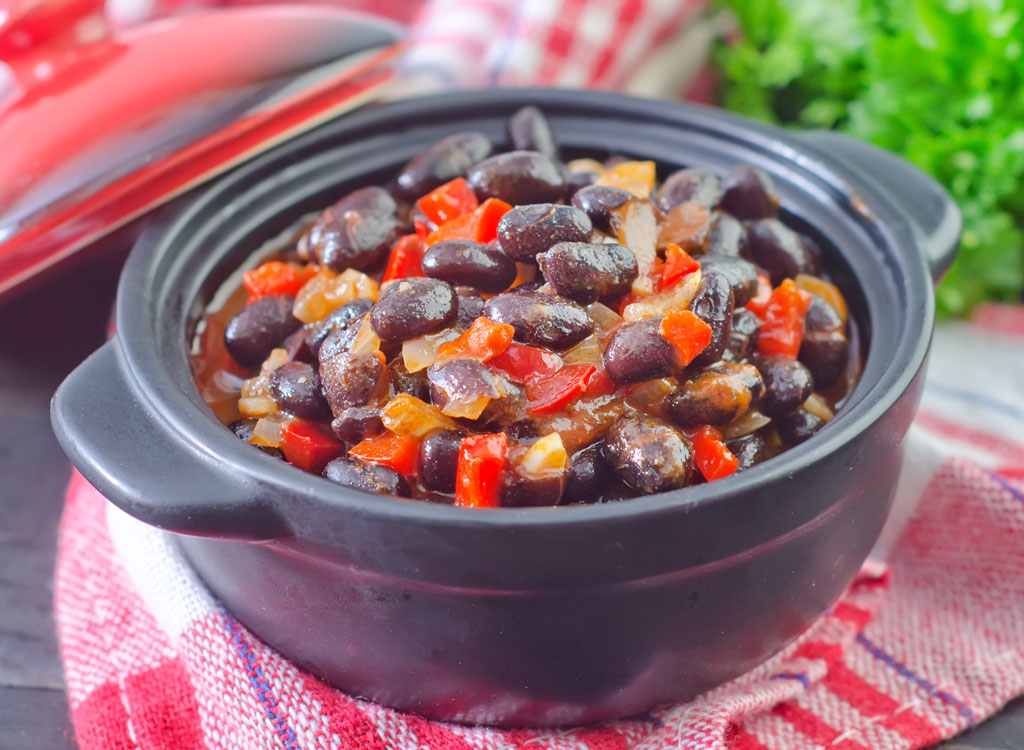
Lysine is an essential amino acid that may play a role in iron and zinc uptake, so, given what we’ve already told you about hair and those key nutrients, it’s not surprising that lysine has been shown to encourage the growth and development of healthy hair. In fact, a 2002 study printed in the journal Clinical and Experimental Dermatology showed that the addition of lysine to iron supplementation significantly helped some women with chronic thinning hair and hair loss who failed to respond to iron supplementation alone. Black beans, which are packed with protein, are also loaded with lysine. A half-cup serving of the legumes contains an impressive 523 milligrams of the essential amino acid.
Blueberries
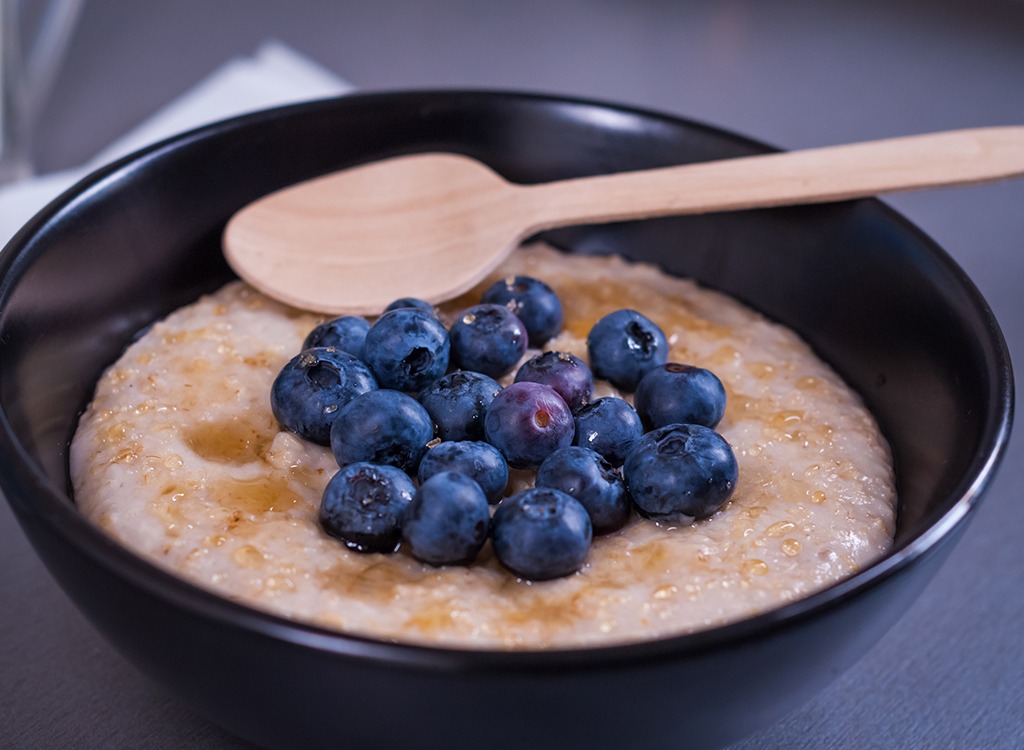
Oxidative stress has been linked to hair loss and unhealthy scalps, so to keep your scalp and hair happy it’s important to load up on antioxidants, which counteract oxidative stress. Thanks to their abundance of vitamin B and proanthocyanidins, antioxidant-rich blueberries are also especially beneficial for hair; an animal study printed in The Journal of Investigative Dermatology found that proanthocyanidins stimulate hair growth.
For Strong Nails
Eggs
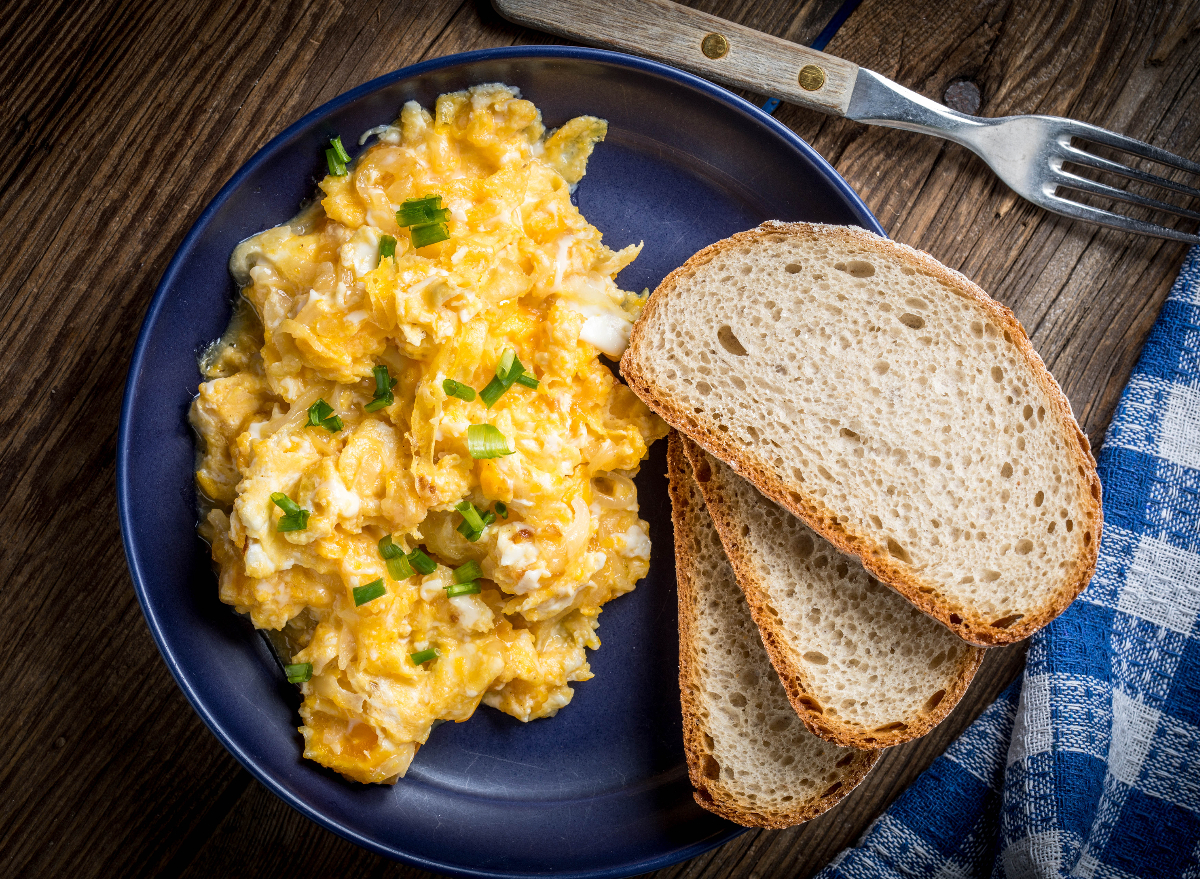
Many hair and nail supplements contain biotin—a B vitamin—which many claim encourages healthy growth, but does it really work? Though there is little evidence to support the belief that biotin positively impacts hair, research suggests it can strengthen nails. Per a study in the Journal of the American Academy of Dermatology, biotin has been shown to improve fingernails. After administering a biotin supplement to participants, researchers discovered that thickness of the nails in these people increased by 25% compared to the control group. Furthermore, biotin-treated nails also showed fewer signs of nail splitting. Eggs are an excellent source of biotin, which is found in the bright yellow yolk.
Almonds
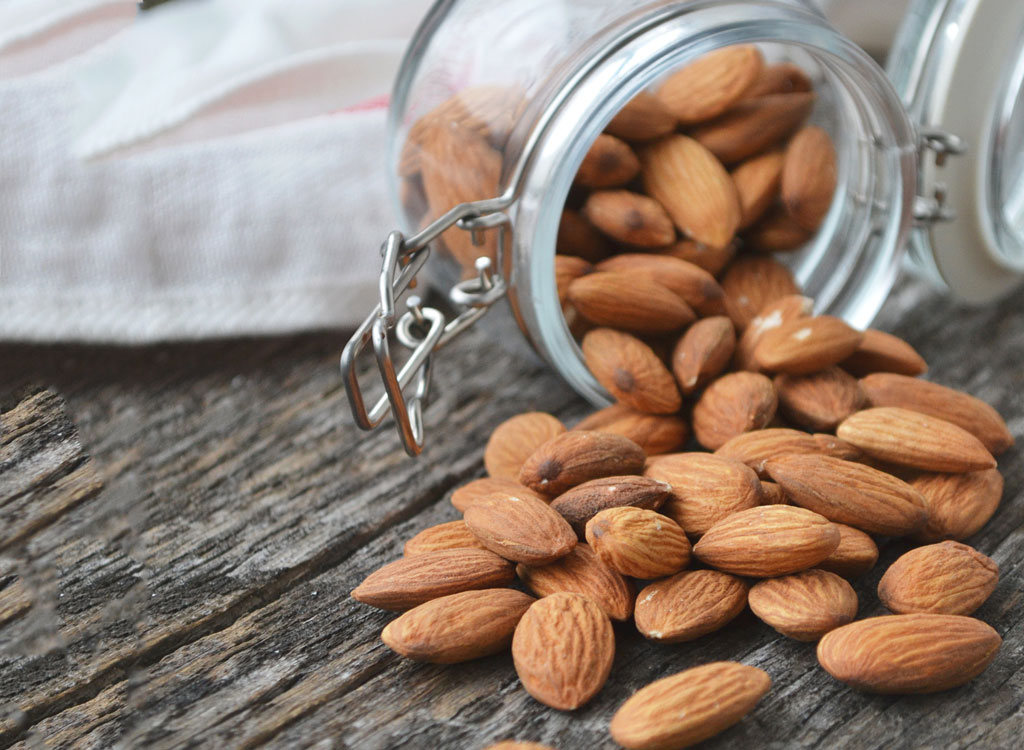
Another great source of biotin? Almonds. In addition to aiding weight loss, a serving of the protein and fiber-packed nuts contains 49% of your RDA of biotin. Furthermore, almonds also contain a healthy dose of vitamin E, which we’ve already established plays an important role in keeping your hair and scalp in tip-top shape.
Strawberries
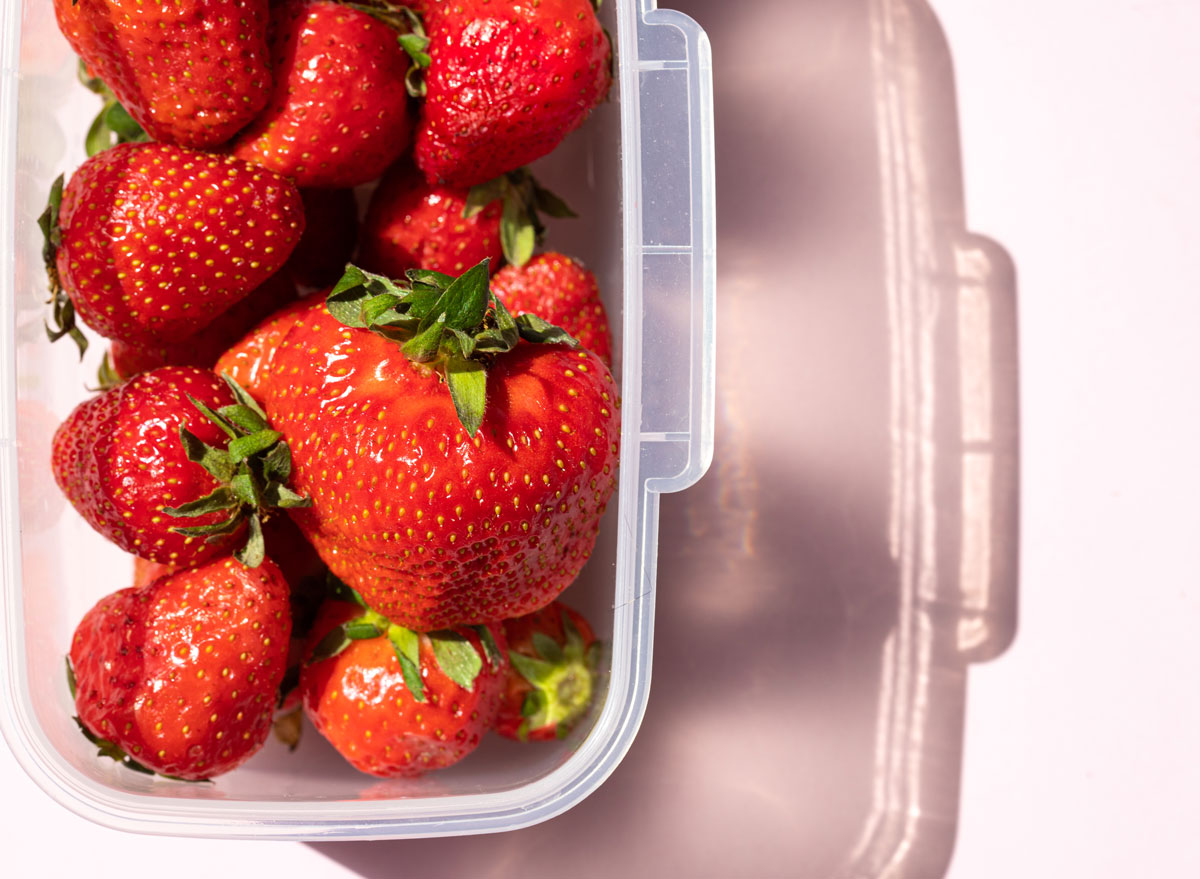
That’s right, the juicy, red fruits beloved by most have some serious benefits for your nails. Dietitian Tanya Zuckerbrot, MS, RD, and founder of the F-Factor Diet, told us in the 7 Best Foods for Strong Nails that eating eight or more strawberries provides more vitamin C than an orange! And since vitamin C is essential for producing the collagen that keeps our nails resilient to breaks, the sweet red fruit is the perfect way to strengthen them.
Chicken
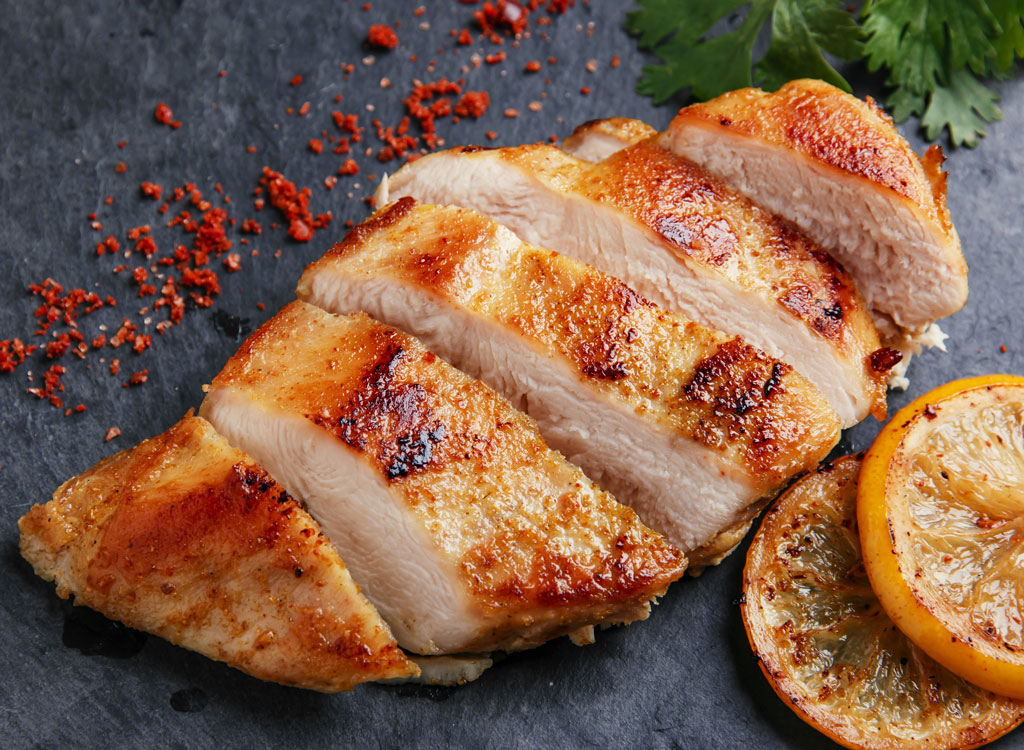
Fingernails are made largely of translucent keratin protein, so if you want them to grow healthier and stronger, eating a diet that’s rich in the muscle-building, satiating nutrient is key. Simple, lean sources of protein will do the trick, such as chicken, turkey, or vegetarian-friendly tempeh.
Flaxseed Oil
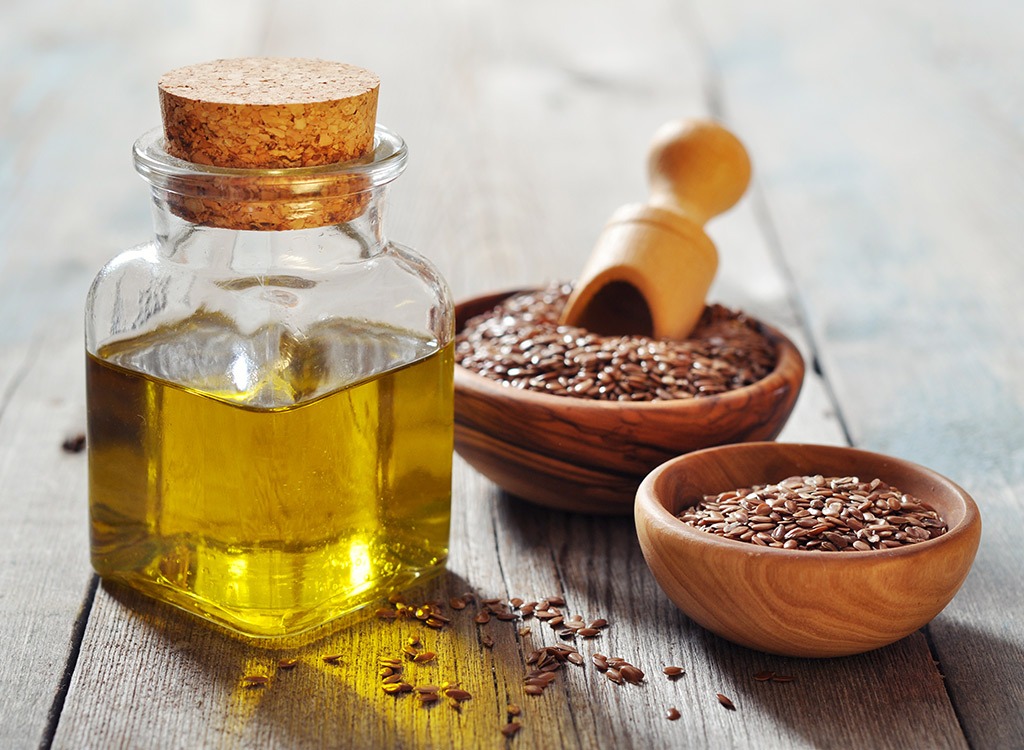
Essential fatty acids (EFAs) are required for the proper structure and function of every cell in the body, and are important for optimal health. So far as nails are concerned, EFAs moisturize the nail bed, which increases the suppleness of thin, brittle nails. To get more of these superstar nutrients in your diet, up your intake of healthy fats, which can be done by adding something such as flaxseed oil to your diet. If that’s not your thing, make sure you eat plenty of fatty fish, which we’ve already established keeps your hair healthy, too.
Coconut Oil
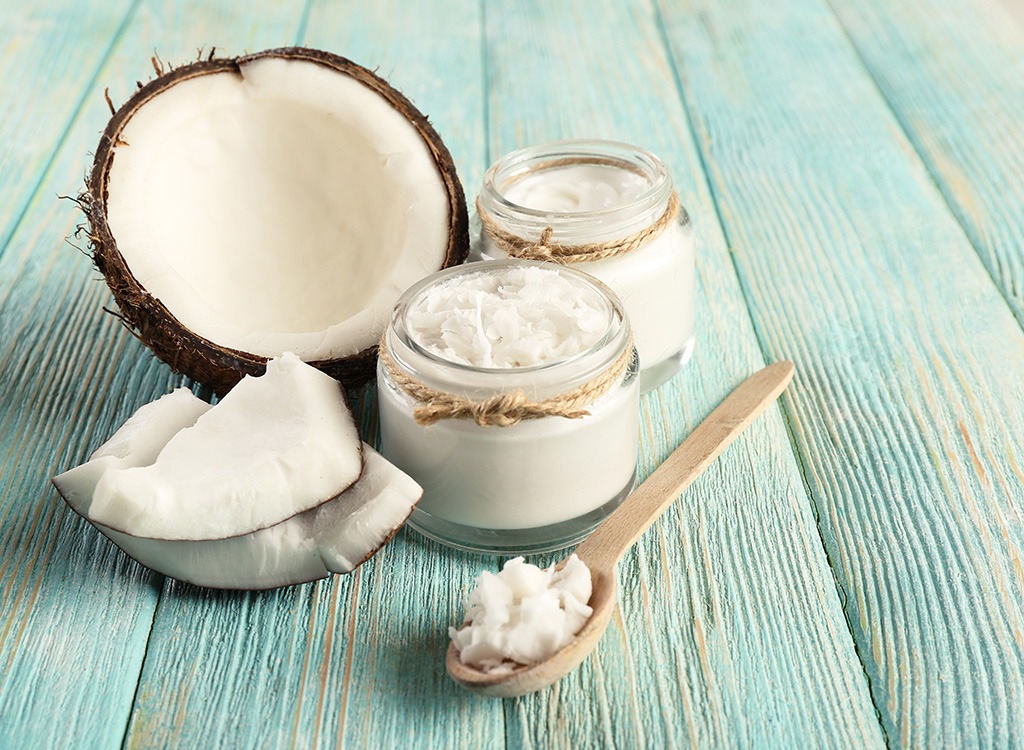
Though it shouldn’t be eaten constantly, coconut oil is another example of a healthy fat that can strengthen and nourish your nails. What’s more? The ever-trendy food doesn’t even need to enter your mouth to get the job done. In fact, many people use coconut oil topically, as it can be applied to nails to soften cuticles, prevent hangnails, and moisturize hands.
Lentils
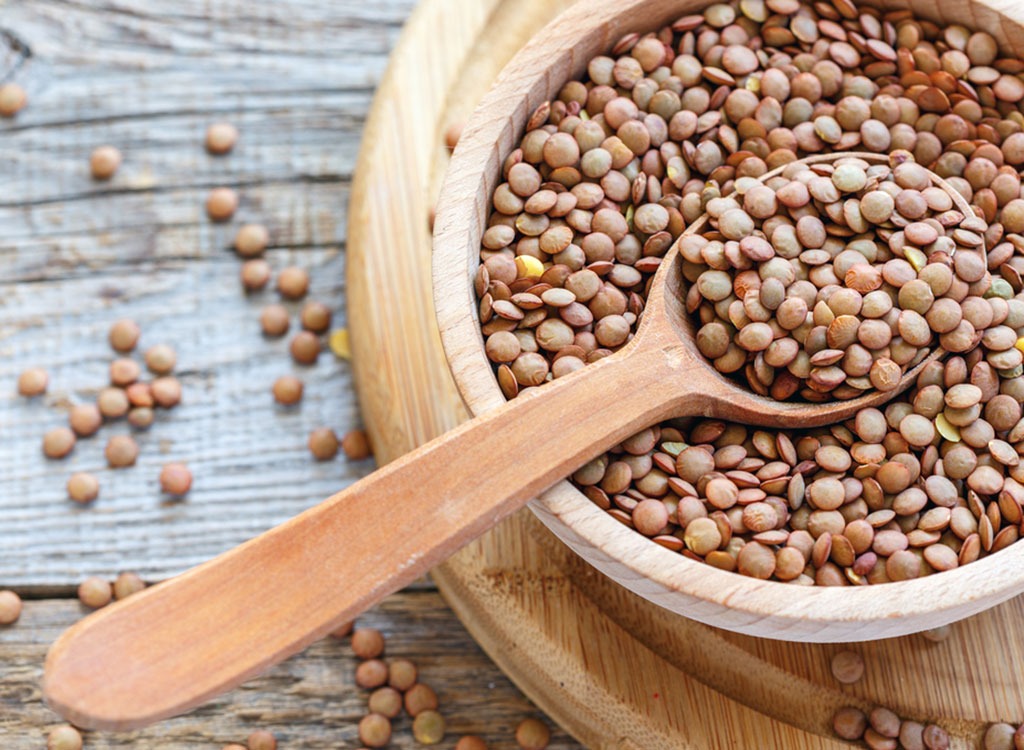
Lentils are loaded with nine essential vitamins and minerals, including B vitamins and biotin. That means, not only are they great for your overall health, but they’re especially suited to keep your nails looking great and feeling strong. Though we’ve already discussed the role biotin plays in nail health, it’s so important in bears repeating. Per a German study, 91% of subjects given a daily oral dose of 2.5 milligrams of biotin showed definite improvement, with firmer and harder nails after approximately five and half months. Though there’s nothing wrong with taking a biotin supplement, getting the nutrient from whole foods is more beneficial overall.
Watermelon
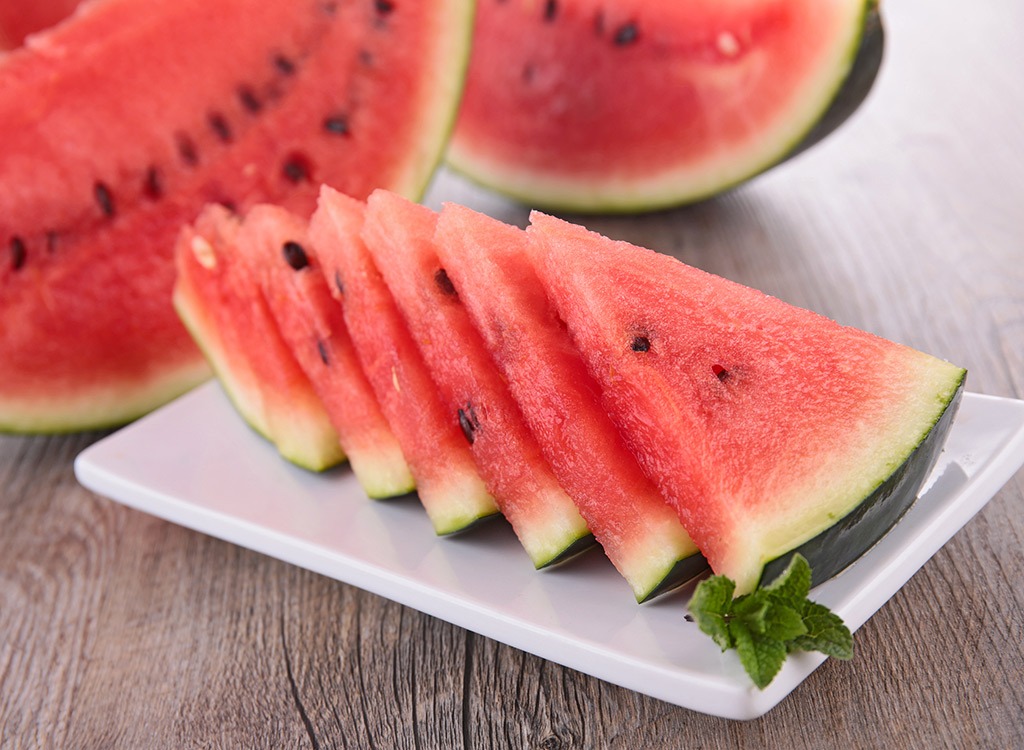
Drinking lots of water is important to keep nails and cuticles hydrated, and in addition to making sure you drink plenty of water each day, you can also improve your nail health by eating foods with a high water content. Summer favorite watermelon, for example, contains about 92% water per volume. You can also add cucumbers to your diet to experience the same effects.
Whole Grains
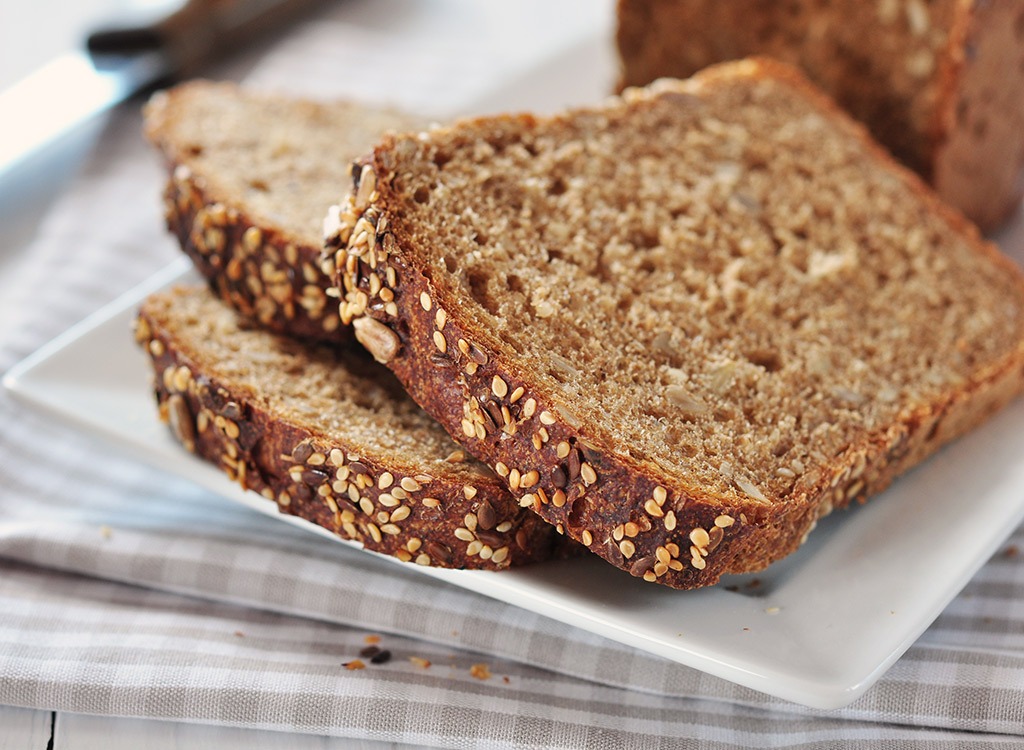
Silica, the natural form of silicon, is a trace mineral that helps the body utilize calcium properly. It’s also the predominant mineral in the composition of nails, which helps explain why it’s so beneficial for them. According to Brazilian researchers, the presence of soft and brittle nails can indicate a systemic deficiency of silicon. Whole grains, such as wheat, barley, oats, and millet, are all excellent sources of silica.
Red Bell Peppers
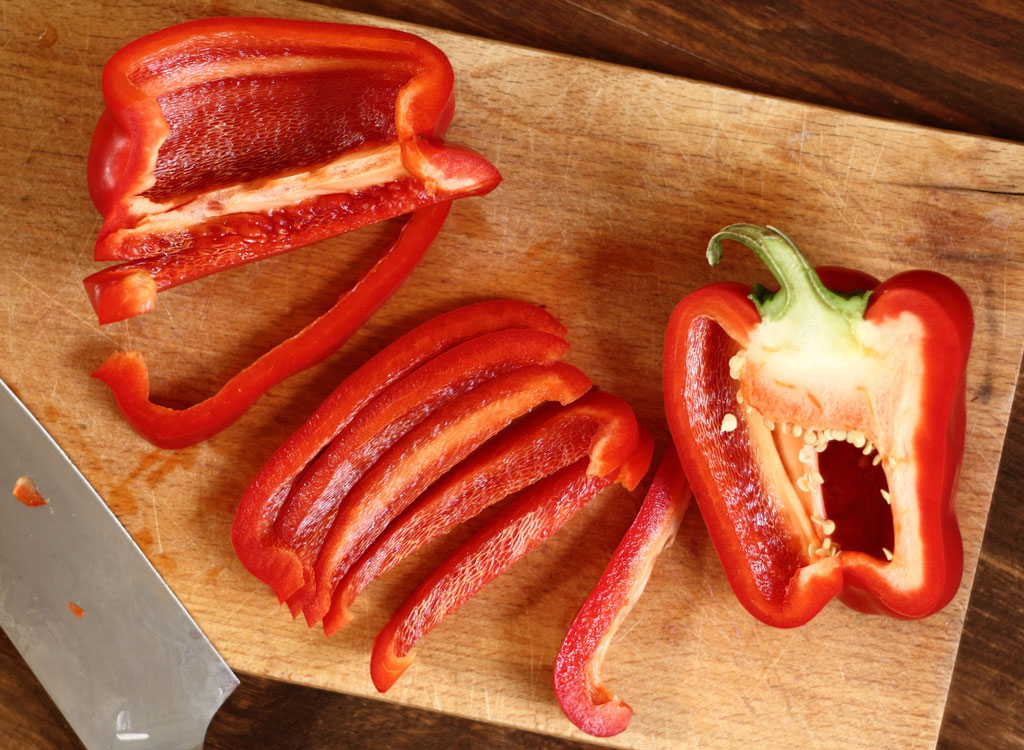
In addition to keeping your skin firm and tight, collagen also helps your nails stay long and strong, that’s why we suggest incorporating red bell peppers into your diet if you want your nails to look and feel their best. The bright veggies pack 190% of the day’s recommended intake of vitamin C (an essential nutrient for producing collagen) and are also loaded with antioxidants that prevent free radicals from damaging and oxidizing our nail cells. Though some red peppers into a stir-fry, or dip the raw veggie in some hummus for a protein-packed snack. For inspiration on how to make protein work for you, check out this list of The 29 Best-Ever Proteins for Weight Loss!
